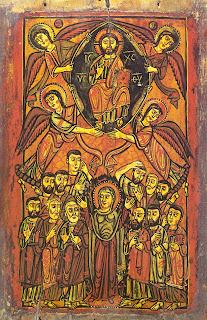Word came of a royal pregnancy, and the world was on fire with the news. St James’ palace announced that the Duchess of Cambridge was in hospital with severe morning sickness. They had to make the announcement earlier than they would have liked, but as soon as the news was out, there was scarcely a corner of the world which didn’t know of the royal pregnancy. The media had shouted it everywhere. It is hard to imagine news like this not spreading like wild fire.
But how silently, how silently the wondrous gift was given on the first Christmas day. I’ve sometimes wondered what Phillips Brooks meant when he wrote those words. It is of course possible that he was simply peddling the classic, sentimental picture of Christmas: The blessed mother, so virtuous that she scarcely felt any pain during child birth, but quietly delivers her child. The infant Lord, so splendiferously holy that he doesn’t cry or scream, but lies there, quietly gurgling, emitting a strange, etherial light. It’s the image of the Bethlehem stable found on thousands upon thousands of Christmas cards up and down the country, and which, we too, have represented in our own, beloved bucolic Christmas shed. If our statue of Mary is anything to go by, she has easily beaten Megan Fox, having lost her baby weight a matter of minutes after giving birth!
It is possible that Phillips Brooks meant us to think of Jesus birth that way. But I like to think that he knew better than that. Real babies don’t come without pain. Real infants don’t keep blissful silence. “The little Lord Jesus, no crying he makes”!? Pull the other one. How silently he came, but not in an otherworldly sense. Silently in that hardly anyone noticed that the greatest gift had come from heaven to human beings. Silently in that the Bethlehem advertiser wasn’t on the doorstep to report the news. Silently in that this birth was completely ordinary, just like millions of other births throughout history. There are many children whose lives get off to a worse start.
It is the ordinariness of this birth which Luke’s story captures so wonderfully. Politicians have plans to count up the inhabitants of the world, hoping to get a good idea of available wealth so that tax revenue can be maximised. A man travels to his home town, just like many other people, taking his fiance with him. He arrives to find a crowded town and makes his way, probably not to a commercial inn, but to the home of a relative to find lodging in their guest room. But the room was already filled with other relatives who had also made the journey to Bethlehem. So Joseph and Mary were were put up underneath the living quarters, where the animals might have slept, and the baby was found a feeding trough to sleep in. There isn’t anything too unusual about this scene, certainly nothing to betray the significance of the events.
When the infant Lord of all creation receives visitors, unlike Matthew, who has Jesus visited by members of a royal court, Luke’s visitors are ordinary working men, going about their ordinary business, perhaps gathered round a fire, playing games or music. Think of a night-watchman playing cards with his colleagues as they kept half and eye on their CCTV monitors. It was these ordinary people to whom the only royal announcement came on that beautiful, awesome night. Not to Augustus, or Quirinius, or Herrod, but to the kind of people you might meet at the pub. And it’s these ordinary people who, if we had read on a few lines, are themselves made God’s messengers: after the had seen the child, they made known what had been told them about this child; and all who heard it were amazed at what the shepherds told them. (Luke 2.17–18)
A second century bishop, St Irenaus once said, ‘Just as the skill of a doctor is revealed in the care of his patients, so the nature of God is revealed in the way he relates to us’. And so at Christmas God is revealed to us as the lover of the ordinary. He is born in an ordinary place, in the ordinary way, he reveals his glory to ordinary people, and he asks for our ordinary lives to proclaim the good news of his love to a waiting world.















